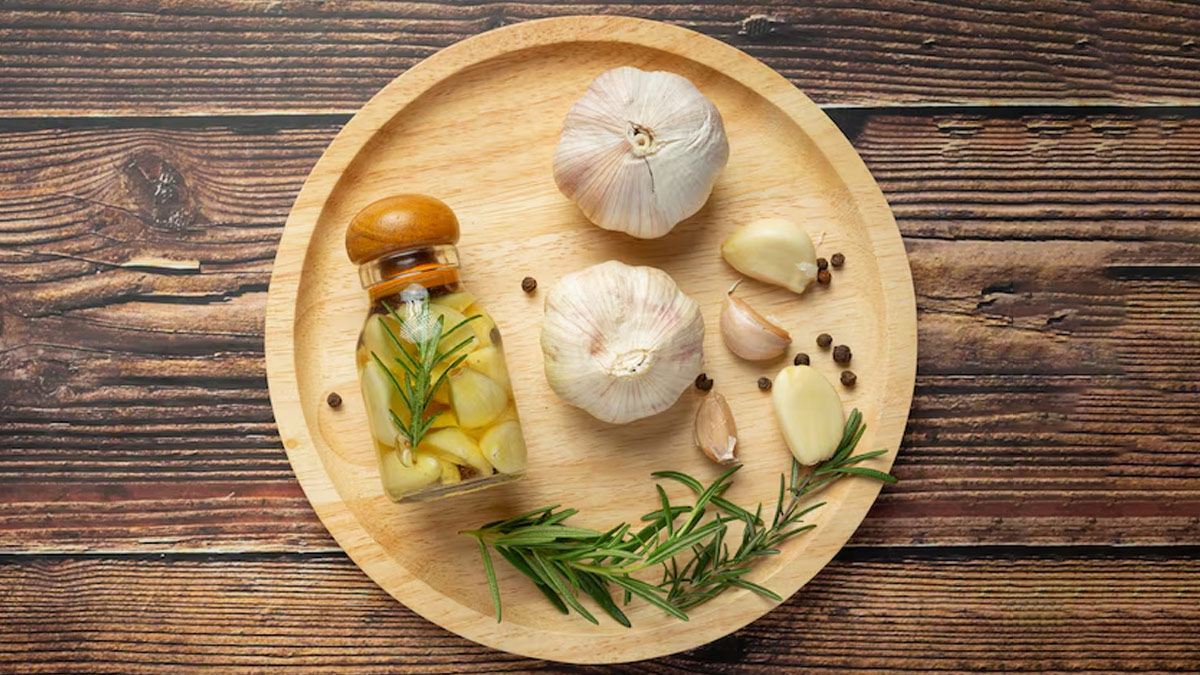Can Putting Fried Garlic Oil In Your Ear Combat Ear Infections? Here’s What Doctor Says About It
Garlic, widely known for its culinary uses, has also been a go-to remedy in traditional medicine for various ailments. But have you ever heard of putting fried garlic oil in your ear to treat ear infections? As surprising as it sounds, I was just as shocked when I saw my grandma doing the same for my mom when she was dealing with severe ear pain. While this age-old remedy has been passed down through generations, it raises an important question: is it actually safe to use garlic oil for ear infections? Let’s explore the facts behind this intriguing practice.
Ear infections, medically referred to as “otitis,” can cause significant discomfort and pain. Garlic (Allium sativum) is rich in compounds like allicin, ajoene, and flavonoids that exhibit potent antibacterial, antiviral, and antifungal properties. But is putting garlic oil in your ear an effective remedy for infections? We turned to Dr Swati Darade, BAMS, DYA, Senior Medical Officer, AYUSH, to understand if this traditional remedy actually works and what are its potential health risks.
Understanding Ear Infections
Dr Darade explains that ear infections are often categorised based on their underlying cause:
- Bacterial infections
- Viral infections
- Fungal infections
- Wax buildup in the ear
- Sinusitis or common cold
- Dental problems
Each of these can lead to ear pain, which can range from mild to severe. While most ear infections can resolve on their own, the pain can be debilitating. Dr Darade suggests a few methods to combat the symptoms of ear infections:
Warm Compress: Applying warmth helps clear congestion and loosen fluid trapped inside the ear.
Cold Compress: Ice packs, when wrapped in a towel and applied gently, can help reduce inflammation and numb the pain.
Change Sleep Positions: Sleeping with the affected ear elevated helps drain excess fluid. If both ears are infected, sleeping on your back may be more comfortable.
Neck Exercises: Slowly rotating your head, shrugging shoulders, or opening your mouth wide can help relieve muscle tension around the ear canal, which reduces pressure and pain.
Also read: Ear Infections During Monsoon: Expert Lists Tips To Follow To Avoid These Infections
What Ayurveda Says About Routine Ear Care

Ayurveda offers a holistic approach to ear health. Dr Darade highlighted a key verse from Charak Samhita Sutrasthan which emphasises a practice called “Karnatarpana,” which involves infusing 2-3 drops of oil into the ear canal daily to prevent ear diseases caused by Vata dosha (air element imbalances), wax buildup, tinnitus, and stiffness in the neck and mandibular joints.
Dr Darade adds that some oils infused with herbs or herbal juices, such as olive oil, castor oil, coconut oil, sesame oil, ginger juice, or tulsi juice, can be used to combat infections and soothe ear pain.
The Role of Garlic Oil in Combating Ear Infections
Garlic has been used in traditional remedies due to its wide range of medicinal properties. Allicin, the main active compound in garlic, exhibits powerful antibacterial activity against a wide range of microorganisms, including antibiotic-resistant bacteria. Garlic also has antiviral, antifungal, anti-inflammatory, and antioxidant properties that make it useful in managing various infections.

According to Dr Darade, garlic oil can be beneficial for ear infections when applied properly. Here’s how you can prepare and use garlic oil for ear infections:
Preparation: Crush a few cloves of garlic and soak them in warm oil (coconut, sesame, or olive oil) for 5 to 10 minutes.
Application: After straining the garlic out, warm the oil slightly and apply 2-3 drops into the affected ear.
Dr Darade stresses the importance of being cautious when using garlic oil. “While garlic oil can soften earwax and help prevent buildup, it’s crucial to avoid using it if you have an active ear infection, a perforated eardrum, or have recently undergone ear surgery.”
Also read: Having Ear Infection? What Are It’s Early Symptoms That One Should Know
Risks and Precautions
Garlic’s potency, while beneficial, can sometimes cause side effects:
Stinging or burning sensation: The strong compounds in garlic can cause a stinging or burning sensation on the skin and may result in redness or irritation.
Allergic reactions: Garlic oil can cause allergic contact dermatitis in some individuals.
Sensitivity test: Before applying garlic oil to your ear, Dr Darade recommends performing a patch test on the skin to check for any adverse reactions.
Conclusion
Garlic oil has many therapeutic properties, but it must be used cautiously when treating ear infections. While it can provide relief in some cases, it’s essential to consult a healthcare professional before applying any remedy to your ear, especially if you have an active infection or other underlying conditions. Dr Swati Darade underscores the importance of using natural remedies like garlic oil responsibly, ensuring that they align with individual health needs and conditions.




